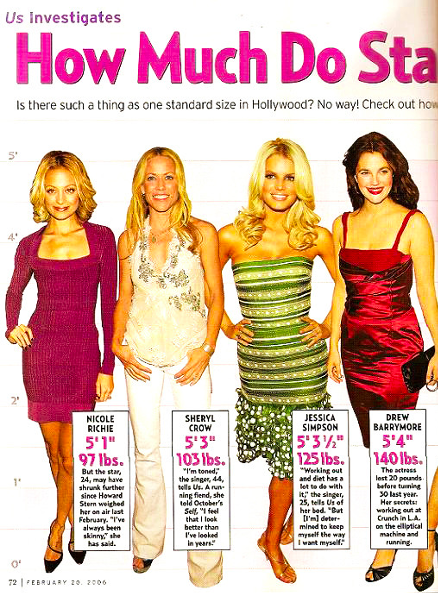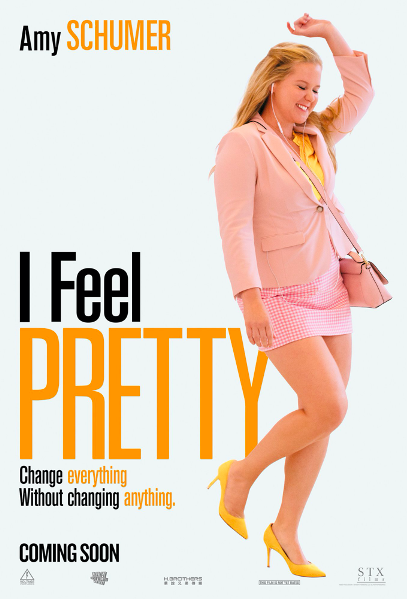‘You are a woman with a man inside watching a woman’. That’s it. That’s the article.
No, I’m only joking – unfortunately I’m going to elaborate on what Margaret Atwood said so well.
Whether you like it or not, we’re going to begin by taking a trip down memory lane – back to lockdown number 1! Many strange things happened during this time, in particular the three categories people seemed to inevitably fall into:
You were either:
- The one who spruced up the garden – most crucially involving some type of fancy shed and an excessive amount of wicker chairs (for the socially distanced future, of course).
Relevant to ages: 40+
- The one who baked sourdough or banana bread non-stop. We’re all still wondering how you found all that flour and yeast…especially when there was a shortage…..
Relevant to all ages.
- The one who ‘glowed up’.
Age requirement: Hm. All ages welcome, but TikTok mandatory.
If you so happened to fall into a lockdown category which didn’t include glowing up, then I’ll try to share a – possibly slightly biased, completely feminist – critique of glow ups.
As with many things, we all have a different idea of what a ‘glow up’ entails. You might agree with what the Collins English Dictionary writes: “if you say that someone glows up you mean that they become more mature, confident and attractive”. Or maybe you lean more towards what the, perhaps more comically explicit, Urban Dictionary describes as an “incredible transformation” or “to go from the bottom to the top to the point of disbelief”. However, I urge you not to be fooled by the media disguising these transformations as wellness or health strategies. These maskings are extremely toxic to society as they typically involve acne transformations and weight loss journeys, presenting their ‘pre-glow up’ self in a negative light. For example, when Adele recently emerged from her low-profile lifestyle, the internet couldn’t handle her weight loss, describing how she ‘got hot’ despite the fact that she’s always been attractive.
The overriding message from the majority of glow up definitions is that your physical appearance improves over a period of time. But we must question if one is really ‘becoming the best version of themselves’ or tapping into what society deems as conventionally attractive? However, looking at what the ‘ideal’ body type is agreed on over the past few decades, we can see that trends and conventions don’t last. That’s something much easier to accept for the likes of clothing or brunch menus (yes, this is aimed at avocado toast) than it is for the likes of women’s bodies. In fact, it’s unacceptable. For example – Paris Hilton, the it girl of the 2000s, had the ‘ideal’ body type – she was extremely thin. Magazines around the time even show the exact heights and weights of female celebrities. Now however, there’s this new expectation that women should have curves, a flat stomach, a tiny waist and so on. The expectations of what a woman’s body should look like, or what is most desirable, changes so frequently that it’s almost funny that we’re expected to keep up with such standards. Taylor Swift in her Netflix documentary ‘Miss Americana’ talks about personal struggles with her body image and weight saying: “Because if you’re thin enough, then you don’t have that ass that everybody wants, but if you have enough weight on you to have an ass, then your stomach isn’t flat enough.” She said it all too well, seriously.

The problem with glow ups is that they completely focus on your appearance – and more so, what’s wrong with it. Arguments for the ‘confidence boost’ that glow ups provide are flawed. Are you happier because you feel that your ‘new’ appearance means that society accepts and values you more? Girl, just because you do your eyebrows differently now doesn’t mean your old self wasn’t good enough, or pretty enough, or worth enough. And we probably know this – deep in the back of our minds – but when Instagram is constantly telling us how our legs aren’t as long as they should be, or that they’re too hairy, or that they just don’t look right, we default to basing our own self worth on our appearance and other people’s opinions. The movie ‘I Feel Pretty’, starring Amy Schumer, according to its description “shows an insecure woman waking up from a nasty fall, when she starts believing that she is a beautiful woman and gains the confidence to do things she was previously shying away from”. Though the movie is a more than a little cringey at times, it does critique the way our society works whilst also sending the message that the way you look shouldn’t determine your confidence – or your outlook on life. Rolling Stone even described the film as ‘quietly revolutionary’.

At one point in time, TikToks started circulating in which people would *genuinely* ask the comment section (a bunch of random people who can say vile things through the protection of a screen) how they could become more attractive. Some of the comments suggested a new piercing, some of them suggested a nose job. Not many suggested that a glow up was unnecessary. If instead we appreciated and wholeheartedly loved what we have and who we are – which is so very difficult to do, especially with social media and indeed, the accessibility we have in comparing ourselves to others – then I think we’d be a lot happier. We wouldn’t have to deal with those insecurities that might prompt a glow up. But this is a utopian idea. It’s pretty much impossible to tackle such an issue that is so firmly rooted into the patriarchal world that we live in – and to quote Margaret Atwood again:
“Even pretending you aren’t catering to male fantasies is a male fantasy: pretending you’re unseen, pretending you have a life of your own, that you can wash your feet and comb your hair unconscious of the ever-present watcher peering through the keyhole, peering through the keyhole in your own head, if nowhere else.”
And it’s painful how true this quote is. The more times you read over it, the more true it becomes. So in essence, even sometimes avoiding ‘glow ups’ (in order to be seen as a girl who isn’t a ‘try hard’) would also be a submission to the patriarchy. Ugh. There is no escaping.
I think becoming aware and critical of such issues is a start. Start to challenge the way you think, your unconscious biases to yourself and the world. Maybe then it will be easier to like who you are.
As RuPaul once said: “If you can’t love yourself, how in the hell you gonna love somebody else?”.
